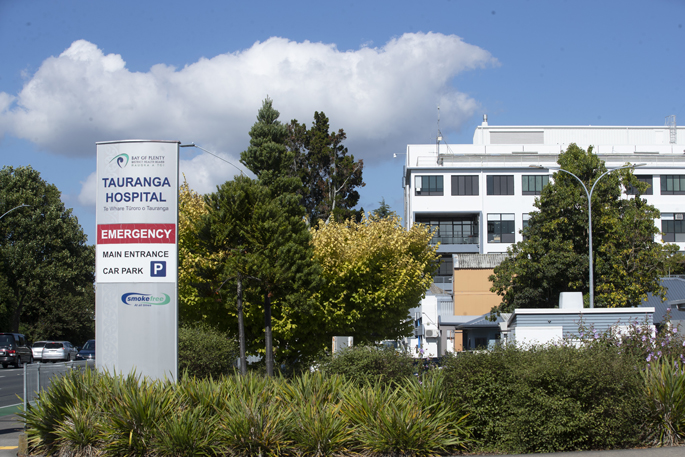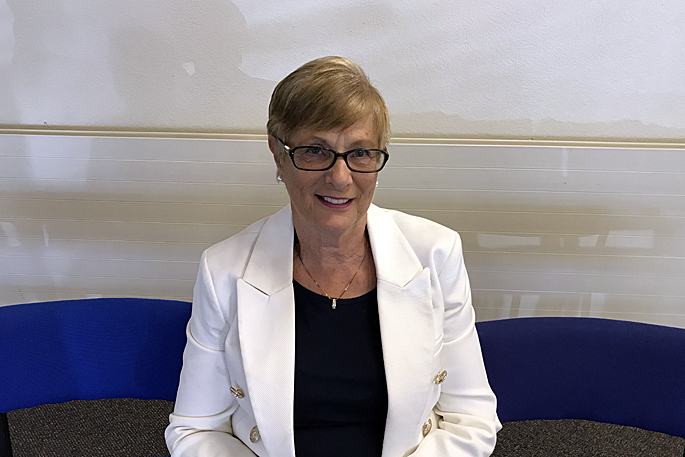The Bay of Plenty District Health Board has faced some 'interesting challenges” in the 22 years since its inception.
Today marks the first day of Health New Zealand and the Māori Health Authority, which replace the country's 20 district health boards.
As Aotearoa experiences the largest shake up of the health system since DHBs were implemented in 2000, outgoing BOPDHB board chair Bev Edlin reflects on the last two decades.
Edlin told Local Democracy Reporting she is 'very proud” of the team and what the health board has achieved in her six years as a member.
Some of the biggest challenges the staff at Whakatāne and Tauranga Hospitals faced was the aftermath of natural disasters, says Edlin.
There were floods in Matatā in 2005, then Edgecumbe flooded in 2017, and perhaps the most devastating, was the Whakaari eruption in 2019.
'We've had some interesting challenges over the years, very interesting, very hard on the staff,” she says.
'Whakaari, when she blew some of our staff, and not all of them were medics, they went out and brought those people in off the helicopters.
'That's trying times for people who are not in the medic side.
'You continually stretch your resources when some of these environmental issues come up.
'Then suddenly you're not running the hospital in isolation… which again puts the staff under a huge amount of pressure,” says Edlin.
'The staff over the last 10 -15 years have faced quite a lot of emergencies and different situations.
'That comes into their day, and they ride it, they stay back, they do everything they can to make sure that those patients get the best care they can possibly get.”
Edlin says she enjoyed working with a 'diverse and solid team” of board members and senior management who were dedicated to the cause.
'We worked well, one governing, one delivering, to make things happen.
'It's been a strong board working with a very strong management team.
'We could not do any more. We did what we could with what we had.
'We used the skills, the expertise around the table and kept things going through some rather challenging times.”
 The district health boards that managed the hospitals have been disbanded and replaced by Health New Zealand and the Māori Health Authority. File photo/SunLive.
The district health boards that managed the hospitals have been disbanded and replaced by Health New Zealand and the Māori Health Authority. File photo/SunLive.
One of the challenges Health New Zealand faces is making sure the infrastructure is set up correctly, says Edlin.
'You've got to have the infrastructure as well, to serve the population. This is such a growing population here.
'The buildings have to be ready for the way medicine's going, the way things are developing, and the way operations are taking place.”
Training, retaining, and attracting more staff is also an area that needs continued focus, she says.
The board started a co-governance model with iwi 16 years ago to work on inequity issues and this is something Edlin hopes the new system will continue to address.
'If they can get better efficiencies out of the system and put a lot of attention to ensure equity right throughout the system, I think I can say that most of us will be quite pleased with that outcome, given that that's where we've been driving for many years.”
A newly appointed Bay of Plenty Iwi Māori Partnership Board aims to transform the health outcomes for Māori in the rohe.
Fifteen iwi representatives have been appointed to the Iwi-Māori Partnership Board (IMPB), with an opportunity for other iwi representatives and mātāwaka to be appointed in future.
The IMPB will supply the Maori Health Authority with valuable insights into the lived experiences of whānau in Te Moana a Toi.
Linda Steel, former chair of Te Rūnanga Hauora Māori o Te Moana a Toi, the partnership board's predecessor, says the goal remains the same.
'While the structures and staff will undergo changes during this time of transition, the kaupapa remains the same as that started by a group of kaumatua and kuia decades ago, better health outcomes for whānau can only be driven by equal partnership as described in the principles of Te Tiriti,” she says.
'Māori don't want to just experience the system we need to play a crucial role in the decision-making.”
 Interim Bay of Plenty district director Pete Chandler. Photo: John Borren/SunLive.
Interim Bay of Plenty district director Pete Chandler. Photo: John Borren/SunLive.
BOPDHB chief executive Pete Chandler says today is the start of transforming the health system to create a 'more equitable, accessible, cohesive and people-centred system” that will improve the health and wellbeing of all New Zealanders.
'At our district level of the health system very little will be different,” says Chandler.
'We will still be providing health services at community level such as GP practices and kaupapa Māori Hauora right through to hospital level care at Whakatāne and Tauranga Hospitals.
He says change at the district level of the health system will be gradual over the coming months.
'Our local focus over the last weeks has been to deliver on our aim of bringing the DHB to a respectful ending, acknowledging the work done by many over the last 22 years.
'There is much work to be done, but we leave a healthy, well connected foundation for the next phase of evolution of health services across the Bay of Plenty.”
Chandler has been appointed interim BOP district director through to December 2022 to help with the transition.
In a statement, Health Minister Andrew Little says the health system had become complex and fragmented and the 20 different district health boards meant healthcare was a 'postcode lottery”.
He says a true nationwide health service will change that.
'Ultimately this is about improving access to healthcare on the basis of need for all New Zealanders, no matter who they are, their ethnicity or gender, or whether they're urban or rural.
'The launch of the new health system is the start of Pae Ora (healthy futures) and means we will have fewer people getting so sick they need to go to hospital.
'We will be able to better support our health workforce and take advantage of new technologies.
'Today is just the start. The next step is to develop the healthcare plan that will guide and determine service delivery across the country and the health charter for our health workforce.
'We're leading the change needed so kiwis have a health system we can be proud of today, and for generations to come,” says Little.
Public Interest Journalism funded through NZ On Air.




1 comment
Principles?
Posted on 01-07-2022 19:26 | By Centurion
'.... driven by equal partnership as described in the principles of Te Tiriti...' There are no principles described in the treaty, no matter how you interpret it. Nor is 'equal partnership'. But if hospitals are to be shared by two separate authorities, there needs to be some pretty clear guidelines as to priorities for equal treatment.
Leave a Comment
You must be logged in to make a comment.